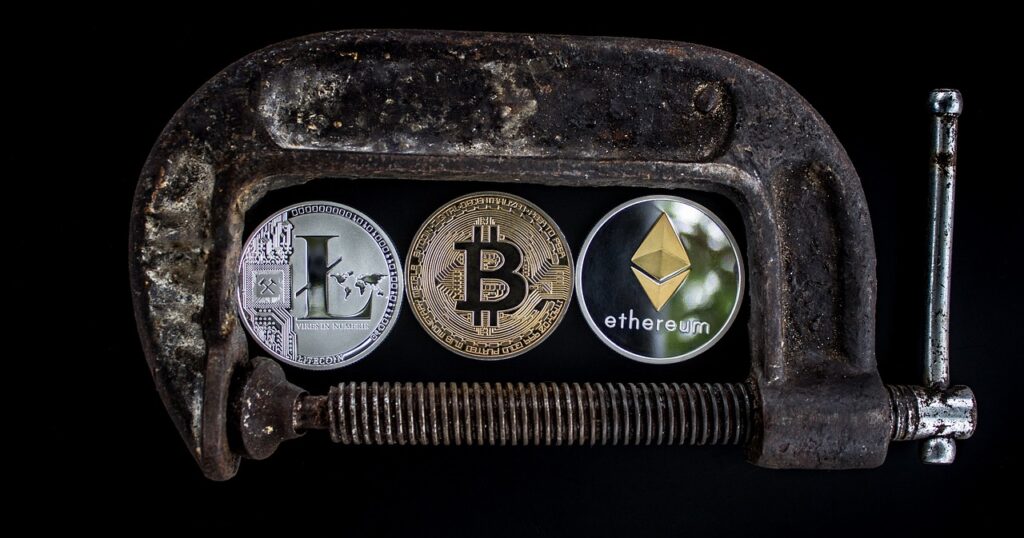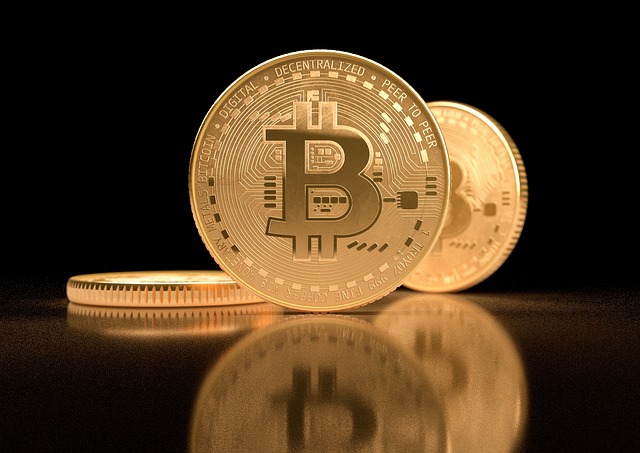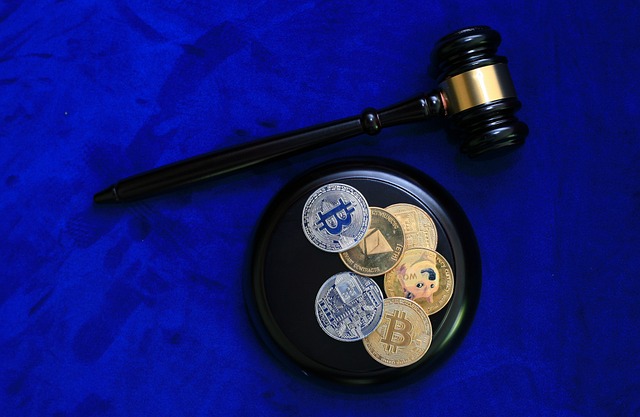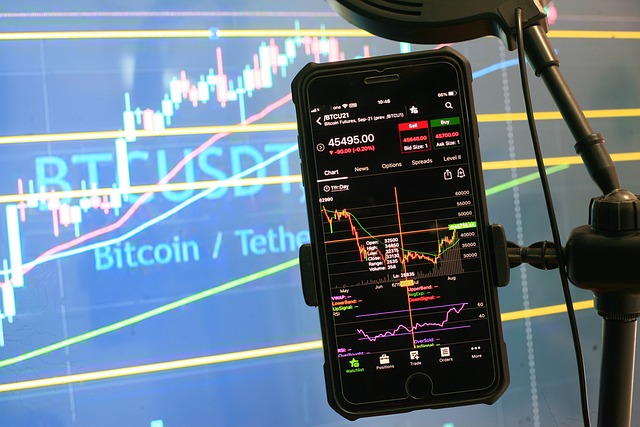Why DeFi? Uncovering the Advantages of Decentralized Finance
Why DeFi? Uncovering the Advantages of Decentralized Finance

A Paradigm Shift in Finance: How DeFi is revolutionizing the traditional financial systems
Decentralized finance (DeFi) is disrupting and reshaping the traditional financial systems as we know them. The rise of blockchain technology has allowed for the creation of a transparent and secure platform that challenges the existing centralized structures. With DeFi, individuals now have the opportunity to participate in financial activities without the need for intermediaries such as banks or brokers. This paradigm shift in finance has opened up a world of possibilities for individuals to take control of their own financial destiny.
One of the key ways in which DeFi is revolutionizing finance is through the concept of smart contracts. These self-executing contracts are coded on the blockchain, enabling parties to interact directly with each other without the need for intermediaries. This not only reduces transaction costs but also eliminates the potential for fraud or manipulation.

Enhanced Financial Inclusion: Exploring how DeFi is empowering the unbanked and underbanked populations
Financial inclusion, or the access to affordable and inclusive financial services, has been a long-standing challenge for the unbanked and underbanked populations around the world. However, with the emergence of decentralized finance (DeFi), there is now a glimmer of hope for these marginalized groups. DeFi, with its decentralized nature and open access protocols, has the potential to revolutionize the traditional financial systems and create new opportunities for the unbanked and underbanked.
One of the key ways in which DeFi empowers the unbanked and underbanked populations is through its ability to provide digital financial services without the need for a traditional bank account. In many developing countries, a significant portion of the population lacks access to basic banking services due to the absence of physical banking infrastructure or high fees associated with traditional banks. However, with DeFi, individuals can now participate in various financial activities such as savings, lending, and borrowing using just a smartphone and an internet connection. This opens up a world of possibilities for those who have been excluded from the formal financial system, allowing them to save money securely, access credit, and engage in economic activities that were previously out of reach.
Transparency and Security: Understanding the inherent benefits of decentralized finance
Decentralized finance (DeFi) is bringing a new level of transparency and security to the financial landscape. Unlike traditional financial systems, which often operate behind closed doors, DeFi utilizes blockchain technology to create a transparent and immutable ledger of transactions. This means that anyone can view and verify the details of a transaction, ensuring that no shady dealings or hidden fees go unnoticed. By removing the need for intermediaries, DeFi also eliminates the potential for corruption or manipulation that can occur when a centralized authority has control over financial transactions. As a result, individuals can have greater confidence in the integrity of the financial systems they engage with.
In addition to transparency, security is a top priority in the world of DeFi. Traditional financial systems rely on centralized databases that can be vulnerable to hacking and data breaches. DeFi, on the other hand, operates on decentralized networks that are highly secure and resistant to tampering. Instead of storing data on a single server, DeFi platforms distribute information across numerous nodes in the network, making it nearly impossible for hackers to compromise the entire system. Furthermore, transactions on DeFi platforms are secured through cryptography, ensuring that each transaction is verified and cannot be altered or reversed. This high level of security gives individuals peace of mind when participating in decentralized finance, knowing that their assets are protected from unauthorized access.
Removing Middlemen: How DeFi eliminates the need for intermediaries and reduces transaction costs
In traditional financial systems, intermediaries such as banks and brokers play a crucial role in facilitating transactions between parties. However, decentralized finance (DeFi) is challenging this longstanding model by removing the need for intermediaries altogether. By leveraging blockchain technology and smart contracts, DeFi protocols enable users to directly interact with each other, cutting out the middlemen and streamlining the process. This not only eliminates the fees and delays associated with intermediaries but also enhances the security and transparency of transactions.
Without intermediaries, DeFi significantly reduces transaction costs, making financial activities more accessible to a wider population. In traditional financial systems, intermediaries often charge substantial fees for their services, particularly for cross-border transactions. These fees can be especially burdensome for individuals with limited financial resources. In contrast, DeFi allows users to transact directly with one another, eliminating the need for costly intermediaries. This opens up opportunities for individuals to engage in financial activities without being hindered by high transaction fees, ultimately fostering a more inclusive financial ecosystem.
Borderless Transactions: Exploring the global nature of DeFi and its impact on cross-border payments
The rise of decentralized finance, or DeFi, has brought about a significant shift in the world of cross-border payments. With traditional financial systems often plagued by high fees, time-consuming processes, and limited accessibility, DeFi has emerged as a game-changer. By leveraging blockchain technology and smart contracts, DeFi platforms allow individuals from all corners of the globe to transact with ease, speed, and minimal costs.
One of the key advantages of DeFi in cross-border payments is its borderless nature. Unlike traditional financial institutions, which often impose restrictions and bureaucratic hurdles, DeFi protocols operate on a global scale, transcending geographical boundaries. This means that individuals can send and receive funds across countries without the need for intermediaries or costly conversions. The decentralized nature of DeFi also ensures transparency and security, as transactions are recorded on a public ledger, providing an immutable record of all activities. As a result, users can have peace of mind knowing that their transactions are conducted in a trustless and verifiable manner.
• DeFi platforms leverage blockchain technology and smart contracts to enable easy, fast, and cost-effective cross-border transactions.
• Unlike traditional financial institutions, DeFi protocols operate globally without imposing restrictions or bureaucratic hurdles.
• Individuals can send and receive funds across countries without intermediaries or costly conversions.
• Transactions on DeFi platforms are transparent and secure, as they are recorded on a public ledger.
• The decentralized nature of DeFi ensures trustless and verifiable transactions.
Accessibility for All: How DeFi provides equal opportunities for individuals regardless of their financial status
In the world of traditional finance, access to financial services is often limited to those who meet certain financial criteria. This exclusionary nature of the industry has left a significant portion of the population underserved and unable to participate fully in the economy. However, decentralized finance (DeFi) is changing the game by providing equal opportunities for individuals regardless of their financial status.
Unlike traditional financial systems that require extensive documentation, collateral, and credit history, DeFi eliminates these barriers and allows anyone with an internet connection to participate. Whether you are in a developed country with a robust banking system or in a remote village without access to traditional financial institutions, DeFi opens the doors to financial inclusion. By leveraging blockchain technology and smart contracts, DeFi platforms enable seamless and secure transactions, asset management, and lending/borrowing opportunities. This accessibility empowers individuals to take control of their finances and engage in economic activities that were previously out of their reach.

Yield Farming and Staking: Unveiling the potential for earning passive income through DeFi protocols
Investing in decentralized finance (DeFi) protocols has opened up new opportunities for individuals to earn passive income through yield farming and staking. Yield farming refers to the practice of lending or providing liquidity to DeFi platforms in exchange for rewards. By allocating their funds to different liquidity pools, users can leverage their holdings to generate additional income.
One of the primary ways of earning passive income in DeFi is through staking. Staking involves holding a particular cryptocurrency in a digital wallet for a specified period, thereby supporting the network’s security and validating transactions. In return for their contribution, users are rewarded with additional tokens. These tokens can be staked again or traded on various platforms for additional income.
The potential for earning passive income through DeFi protocols is attracting an increasing number of individuals seeking to diversify their investment portfolios. Unlike traditional financial systems, DeFi platforms provide equal opportunities for everyone to participate, regardless of their financial status. With the flexibility to choose among various liquidity pools and cryptocurrencies, individuals are empowered to make informed investment decisions that align with their risk tolerance and financial goals.

Programmable Money: Understanding the power of smart contracts and their role in DeFi applications
Smart contracts are one of the key foundations of decentralized finance (DeFi) applications. These self-executing contracts are coded onto the blockchain, enabling the automation of transactions and eliminating the need for intermediaries. By leveraging smart contracts, DeFi platforms can provide a range of financial services, including lending, borrowing, and asset management, all without the involvement of traditional financial institutions. This programmable money has immense power in revolutionizing the way we interact with and control our finances.
The role of smart contracts in DeFi applications is to facilitate trustless and transparent transactions. Unlike traditional financial systems where trust is placed in banks or intermediaries, smart contracts operate based on predefined rules and conditions. This ensures that transactions are executed exactly as agreed upon, without the need for any third-party approval. As a result, users have greater control over their funds and can access financial services in a more secure and efficient manner. Programmable money not only enhances the speed and convenience of transactions but also brings an unprecedented level of transparency to the financial ecosystem.
DeFi Lending and Borrowing: Exploring the advantages of decentralized lending and borrowing platforms
Decentralized lending and borrowing platforms are revolutionizing the traditional methods of obtaining and providing loans. Unlike traditional financial institutions, which often require extensive documentation and have lengthy approval processes, decentralized finance (DeFi) enables individuals to lend and borrow directly from one another using smart contracts on blockchain networks. This eliminates the need for intermediaries, making the process faster, more efficient, and transparent.
One of the key advantages of DeFi lending and borrowing platforms is their accessibility. With traditional financial systems, many individuals, especially those in underbanked or unbanked populations, are excluded from accessing loans due to stringent requirements and lack of credit history. However, decentralized lending platforms provide equal opportunities for individuals regardless of their financial status. By using alternative factors, such as cryptocurrencies as collateral, DeFi lending platforms enable anyone with digital assets to borrow funds, bridging the gap and empowering the unbanked and underbanked populations.
Future Outlook: Predicting the future of DeFi and its potential to reshape the financial landscape.
The future of decentralized finance (DeFi) holds immense potential to disrupt and reshape the traditional financial landscape. With the rapid advancements in blockchain technology and the growing adoption of cryptocurrencies, DeFi is likely to gain even more traction in the coming years. As more individuals and institutions recognize the benefits of decentralized financial systems, we can expect a significant shift towards embracing DeFi as a mainstream alternative.
One of the key factors that will contribute to the growth of DeFi is its ability to provide financial services to those who are currently excluded from traditional banking systems. With the power of blockchain technology, DeFi can empower the unbanked and underbanked populations by offering them access to a wide range of financial products and services. This enhanced financial inclusion has the potential to uplift millions of people worldwide, providing them with equal opportunities to participate in the global economy.
What is DeFi?
DeFi stands for decentralized finance. It refers to the use of blockchain technology and smart contracts to create financial applications that are open, transparent, and accessible to anyone.
How is DeFi revolutionizing the traditional financial systems?
DeFi is changing the game by eliminating the need for intermediaries like banks and enabling peer-to-peer transactions. This decentralization allows for greater efficiency, lower costs, and increased financial freedom.
How does DeFi empower the unbanked and underbanked populations?
DeFi provides enhanced financial inclusion by allowing individuals without access to traditional banking services to participate in the financial ecosystem. Through DeFi applications, they can save, invest, and transact, all without the need for a traditional bank account.
What are the benefits of decentralized finance in terms of transparency and security?
DeFi offers unparalleled transparency as all transaction data is recorded on the blockchain, making it easily verifiable. Additionally, decentralized finance platforms are built with robust security measures, reducing the risks associated with centralized systems.
How does DeFi eliminate the need for intermediaries and reduce transaction costs?
DeFi cuts out middlemen like banks and other financial institutions, allowing users to interact directly with each other. This removes the associated fees and delays, resulting in lower transaction costs and faster settlements.
How does DeFi enable borderless transactions and impact cross-border payments?
DeFi is borderless by nature, making it easier and cheaper to send and receive money across borders. With decentralized finance, individuals can transfer funds globally without the need for traditional banking systems or currency conversions.
Does DeFi provide equal opportunities for individuals regardless of their financial status?
Yes, DeFi is designed to provide equal opportunities for everyone. It allows individuals to access financial services and products, regardless of their financial status, geographical location, or background.
What is yield farming and staking in the context of DeFi?
Yield farming and staking refer to the practice of earning passive income by locking up or lending cryptocurrencies on DeFi platforms. Users can earn rewards or interest on their digital assets by participating in these protocols.
What are smart contracts and how do they play a role in DeFi applications?
Smart contracts are self-executing contracts with predefined rules coded directly into the blockchain. In DeFi, smart contracts automate and enforce transactions, removing the need for intermediaries. They ensure trust and transparency in financial interactions.
What advantages do decentralized lending and borrowing platforms offer?
Decentralized lending and borrowing platforms within DeFi provide individuals with access to loans and credit without the need for a traditional bank. These platforms often offer better interest rates, faster loan processing, and increased privacy compared to traditional lending institutions.
How do you predict the future of DeFi and its potential to reshape the financial landscape?
The future of DeFi looks promising. As more individuals and businesses recognize the benefits of decentralized finance, we can expect increased adoption, innovation, and integration with traditional financial systems. DeFi has the potential to disrupt and reshape the entire financial landscape.
Todays Featured Product:
Buy, exchange and grow your crypto securely with a Ledger hardware wallet, combined with the Ledger Live app. It’s never been easier to keep your crypto safe and accessible. Buy direct from Ledger.com and get todays Special Offers Here.




